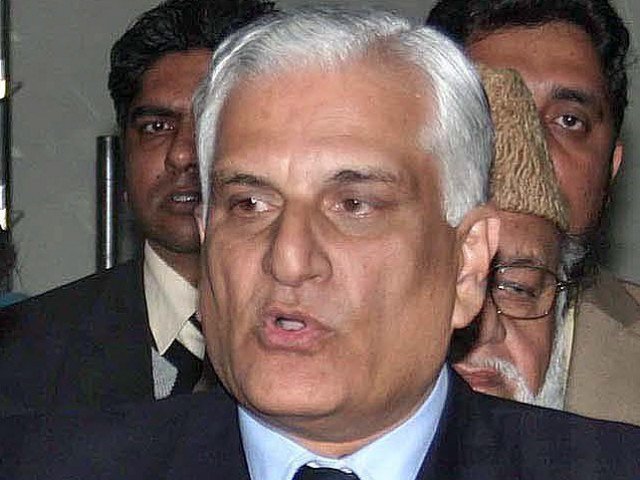
The 22nd meeting of Parliamentary Committee on National Accountability Law was due to take place on Monday in the Parliament House, but was postponed because of Hamid’s resignation following the deadly clashes at Faizabad interchange.
National Assembly Speaker Ayaz Sadiq had announced the formation of the committee to review the existing National Accountability Bureau (NAB) law, and to convert it into National Accountability Commission (NAC).
Law Minister Zahid Hamid resigns as analysts predict defections in PML-N
On Monday, the committee had planned to finalise the agreed-upon clauses one by one, and reach a consensus decision on the law.
The 20-member parliamentary committee comprises 13 members of the National Assembly and seven senators. The committee was formed after NAB came under severe criticism from different quarters, especially over its plea-bargain clause which provides for acquittal of accused on their acceptance to return part of the embezzled money to the state.
The committee was to introduce several amendments. The former law minister had played a pivotal role in taking the committee ahead since January.
The meeting of the committee was kept in-camera to keep the media at bay, but after the proceedings Hamid would talk to journalists about the developments and issues.
“He was most suitable for the position – the right person for the right job,” said a member of the committee who spoke on the condition of anonymity.
The last few meetings were tough for the government as the Pakistan Tehreek-e-Insaf (PTI) and the Jamat-e-Islami (JI) had already rejected the new accountability commission stating that only amendment to the existing ones would be enough “to strengthen the law of 1999”. The JI contended that the government was unwilling to tighten the noose around the public office holders.
Islamabad crackdown: Protesters ransack Law Minister Zahid Hamid's house in Pasrur
The enactment of the laws for an across-the-board accountability was another tough issue for Hamid to handle as Senator Farhatullah Babar of the Pakistan Peoples Party (PPP) had floated the suggestion but that did not go well with his own party, the government and the PTI.
Later the PPP withdrew the much-talked-about proposal of bringing judges and generals under the ambit of the proposed accountability commission that led to Babar’s resignation from the committee.
In the last meeting on November 27, Hamid had told reporters that the committee would discuss the law clause-wise, and would like to decide the law as soon as possible as it had already wasted a lot of time in discussing the law.
When another member asked about the fate of committee, he stated that the government would have to name a senior and experienced person for the committee. “It is indeed an important position to fill for the government, and they have to do so very soon,” he remarked.





























-(1)1714378140-0/AliAminMaryam-(4)-(1)1714378140-0-270x192.webp)








COMMENTS
Comments are moderated and generally will be posted if they are on-topic and not abusive.
For more information, please see our Comments FAQ